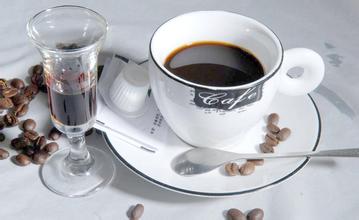Big international coffee traders "occupy" Yunnan coffee
Pu'er in Yunnan Province, China's largest Pu'er tea-producing region, has attracted foreign trade in recent years for coffee beans. As the production of Brazilian coffee beans is reduced, these foreign traders come more frequently and begin to seek more in-depth cooperation with local enterprises. Volcafe, a well-known multinational coffee trader, is one of them.
Recently, Yunnan Simao Arabica Star Coffee Co., Ltd. and Switzerland's Volcafe established a joint venture in Pu'er, and Volcafe will become the first international coffee trader to have a foothold in China.
Deng Xufang, trade manager of Simao Arabica Star Coffee Company, told Interface News that the joint venture company is called Yunnan Volcafe Co., Ltd., Switzerland-based Volcafe is the major shareholder and will play a leading role in the joint venture in the future.
Prior to this, the two have had a cooperative relationship for more than a decade. Volcafe has been exporting Chinese Arabica coffee beans for more than a decade, and Arabica Star Coffee is its largest partner in Yunnan.
According to Deng Xufang, before the cooperation, Arabica Star Coffee Company's main mode of operation was to buy coffee beans from local growers and then export them to European markets such as Germany and Italy, which accounted for 90% of the business. After the cooperation, the two sides will continue their previous cooperation in purchasing and raw materials, and will involve some deep processing business in the future, such as roasted beans, which is further than the current trade in raw coffee beans.
There is a consensus among coffee traders: Brazil produces the largest amount of Arabica coffee beans, producing 51 million bags (60kg each) last year. Colombia has the best quality, but the price is also higher, producing probably less than 20 million bags.
The continuous drought in Brazil since the beginning of this year has seriously affected the production of coffee beans. A Brazilian agency responsible for investigating crop production estimates that Brazilian coffee production will fall by about 8.16% in 2014 compared with last year. This is the third year in a row that the output of Brazilian coffee beans has declined.
Due to the sharp decline in Brazilian production, many traders have chosen the relatively cheap Arabica coffee beans from Yunnan, China, which are also on a par with Brazilian coffee beans in quality. At present, the production of Arabica coffee beans in China has exceeded 1 million bags, and that number is still increasing because growers are still increasing.
Many farmers in Pu'er, Yunnan, find that the income of growing coffee beans is higher than other crops and join the ranks of coffee bean growers. According to a 2012 data, Simao District of Pu'er City, Yunnan Province, has an area of 137900 mu of tea, an increase of 3.29%, and an area of 134100 mu of coffee, an increase of 18.82%.
Here, big coffee companies such as Nestle SA and Starbucks Corp. Have already invested in farms and growers to ensure their raw materials are available.
Deng Xufang told the Interface News that the Yunnan Simao coffee bean market, with an output of about 30, 000 tons (500000 bags), has almost been occupied by foreign coffee traders. In addition to its partner Volcafe, there are many similar multinational trading companies seeking various forms of cooperation with Chinese coffee growers. Ecom agroindustrial corp.ltd, another well-known trading company headquartered in Switzerland, and Louis Dreyfus, the French trading company, both belong to the larger local coffee traders in Simao and have set up purchase sites here with annual acquisitions of about 2000 tons, while Arabica Star has acquired 3000 tons this year.
In addition, there is a market demand for coffee beans in China. Asian buyers from mainland China, Taiwan, Japan and South Korea have been the most active buyers of the world's best coffee beans sold online. Sales of packaged coffee beans in these countries and regions are growing at least twice as fast as those in the United States, according to market research firm Euromonitor.
Arabica Star Coffee Company has also found that the Chinese mainland coffee market is also growing in recent years, with great potential, but Deng Xufang said bluntly that despite the potential, Chinese mainland's partners are still immature in many ways.

Important Notice :
前街咖啡 FrontStreet Coffee has moved to new addredd:
FrontStreet Coffee Address: 315,Donghua East Road,GuangZhou
Tel:020 38364473
- Prev

Coffee giant selling cups recalls 7 million coffee machines
After 90 scald accidents were reported, Green Mountain Coffee announced on December 23 that it would recall more than 7 million Keurigs MINI Plus Brewing System machines in the United States and Canada, mainly because they may spray hot liquid and scald users during use. According to the Consumer Product Safety Commission (CPSC)
- Next

Nestle's bottled drinks sell well in China, but the growth of instant coffee slows down.
Nestl é, the world's largest food manufacturer, released its semi-annual report for 2015, which showed that its global sales in the first half of the year were 42.8 billion Swiss francs (280.34 billion yuan), an organic growth of 4.5% and a real internal growth of 1.7%. The operating profit is 15%. Nestl é CEO Paul Bokai (Paul Bulcke) said the first-half results were in line with expectations, even in a difficult environment
Related
- What is the difference between Indonesian Sumatra Mantinin coffee and gold Mantinin? How to distinguish between real and fake golden Mantelin coffee?
- What does bypass mean in coffee? Why can hand-brewed coffee and water make it better?
- Unexpected! Ruixing Telunsu lattes use a smoothie machine to foam milk?!
- % Arabia's first store in Henan opens into the village?! Netizen: Thought it was P's
- Does an authentic standard mocha coffee recipe use chocolate sauce or powder? Mocha Latte/Dirty Coffee/Salty Mocha Coffee Recipe Share!
- What is the difference between Vietnam egg coffee and Norway egg coffee? Hand-brewed single product coffee filter paper filter cloth filter flat solution!
- What is the difference between sun-cured and honey-treated coffee? What are the differences in the flavor characteristics of sun-honey coffee?
- How to make Italian latte! How much milk does a standard latte use/what should the ratio of coffee to milk be?
- How to make butter American/butter latte/butter Dirty coffee? Is hand-brewed coffee good with butter?
- Is Dirty the cold version of Australian White? What is the difference between dirty coffee/decent coffee and Australian white espresso?

